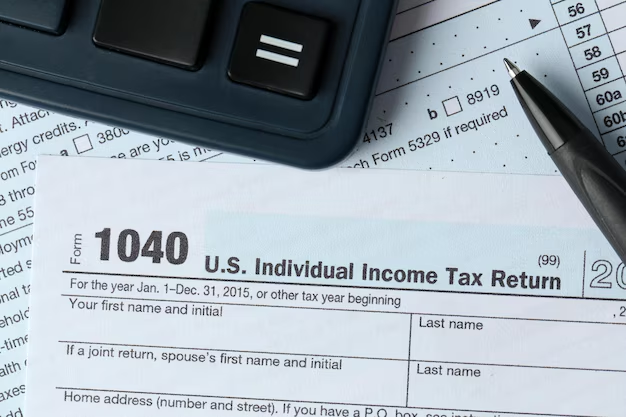Understanding Taxes in Florida: What You Need to Know in 2023
Welcome to the Sunshine State, where the weather is warm, the beaches are inviting, and the taxes might be less daunting than you think. If you're new to Florida or considering calling it home, you might be curious about its tax landscape. This article dives into the details of how much taxes you can expect to pay in Florida, focusing on various aspects like state income tax (hint: none!), property taxes, sales tax, and more. From why Florida's tax system is attractive to how you can plan effectively, we've got you covered with everything you need to know.
Florida's Tax Advantage: No State Income Tax
One of the most appealing features of living in Florida is the complete absence of a state income tax. This unique advantage makes the state an attractive destination for individuals and businesses, providing significant savings that would otherwise be deducted in other states.
How Does No State Income Tax Benefit You?
- Increased Take-Home Pay: You can enjoy more of your earnings, as there's no need to allocate a portion to state income taxes.
- Attractive to Businesses: Businesses find Florida appealing due to reduced tax burdens, contributing to the state's growing economy.
- Retirement-Friendly: Retirees favor Florida for its tax policies, as pensions, Social Security, and other retirement incomes are not taxed.
Despite the tax-friendly environment, it's important to factor in other types of taxes that may affect you. Let's explore these next.
Understanding Sales Tax in Florida
Florida's sales tax is straightforward but knowing the details can help you manage your finances effectively. The state-wide base rate is 6%, but this can vary slightly depending on local jurisdiction adjustments.
Local Sales Tax Variations
- Local Additions: Depending on the county, the overall sales tax can range from 6% to 8%.
- Common Purchases Affected: Everyday items like clothing and electronics will include this tax.
Practical Tips:
- Check Local Rates: Knowing the rate in your specific county can help in budgeting for big purchases.
- Consider Timing: Take advantage of tax-free weekends typically offered on back-to-school supplies and disaster preparedness items.
Property Taxes: What Homeowners Need to Know
If you're planning to buy property in Florida, understanding property taxes is essential. Although there's no state income tax, Florida's property taxes stand as one of its primary revenue sources.
Florida's Property Tax Structure
- County-Based Rates: Property tax rates in Florida are set by local districts, resulting in variations across the state.
- Effective Rates: Typically range from 0.83% to 1.03% of your property's assessed value.
Key Points for Homeowners:
- Homestead Exemption: This can reduce the taxable value of your primary residence by up to $50,000, which provides significant savings.
- Understand Assessment: Property is generally assessed at its most recent purchase price, but annual caps limit increases.
Other Notable Taxes in Florida
While Florida offers appealing perks with its tax system, a few other taxes might affect you:
Fuel and Communication Services
- Gas Tax: Florida's gas tax is relatively high, contributing to infrastructure funding. This tax can impact your commuting costs.
- Communications Services Tax: This covers landline, cell phone, and cable services, typically ranging around 7.44%.
Planning for These Taxes:
- Fuel Efficiency: Consider fuel efficiency when selecting a vehicle.
- Bundle Services: You might find savings in bundled communication services.
Tax Implications for Businesses in Florida
Business owners considering Florida can expect a welcoming environment rich with opportunities thanks to its tax policies.
Corporate Tax:
- Low Corporate Tax Rate: Florida levies a corporate income tax of 5.5%, which is appealing to growing businesses.
- Tax Incentives: Numerous incentives exist for businesses investing in specific regions or sectors.
Business-Friendly Environments:
- No Ad Valorem Taxes on Goods: Certain goods are exempt from these taxes, encouraging retail and commerce.
- Support for Start-Ups: Startup hubs thrive with supportive tax legislation aiming at innovation.
Visually Distinct Summary Section
To make informed decisions about residing or doing business in Florida, remember these key points:
- 🌞 No State Income Tax: Keep more of your earnings.
- 🏠 Property Tax Considerations: Know your county's rate and exemptions.
- 🛍️ Sales Tax Strategy: Understand your local rate and shop smartly during tax-free events.
- 🚗 Fuel and Communication: Account for gas and service taxes in your budget.
- 📈 Business Landscape: Explore advantages and incentives if you plan to start or expand a business.
Final Insight into Florida's Tax Landscape
Living in Florida offers significant tax advantages, especially with the absence of state income tax. While it's important to consider other taxes like sales, property, and specific service taxes, understanding these nuances can greatly improve financial planning. Whether you're a resident, retiree, or business owner, Florida's tax environment offers an appealing compromise that supports both growth and quality of life, making it an attractive place to call home. Embrace the opportunities Florida's tax structure presents, and let the sunny skies be just one of the many benefits you enjoy living in the Sunshine State.

Related Topics
- Am I Tax Exempt
- Are 401k Contributions Tax Deductible
- Are 529 Plan Contributions Tax Deductible
- Are Attorney Fees Tax Deductible
- Are Campaign Contributions Tax Deductible
- Are Charitable Donations Tax Deductible
- Are Church Donations Tax Deductible
- Are Churches Tax Exempt
- Are Closing Costs Tax Deductible
- Are Contributions To 529 Plans Tax Deductible
